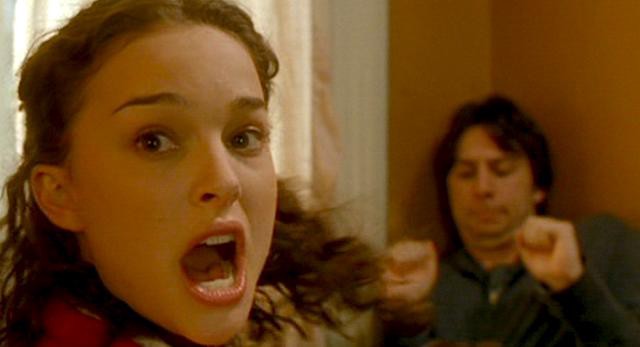Wine: The Classy Way To Get Drunk At Home
“There are 1,368 wine and liquor stores in business in New York City — a 14% spike from 2010 — and businesspeople say the wine trend is part of the uptick.”
Guy Thinks People Still Have Any Sort Of Respect For Authors
“The question remains, why do people have such a high regard for authors, even when they don’t read?”
Coffee Drinkers Never Forget
“Caffeine enhances consolidation of long-term memories in humans,” says some guy who comes from Science, which is all well and good until you remember that your long-term memories are full of disappointment, sadness and outright horror, at which point you may also recall that there is a solution to erasing those memories, which is called alcohol. It is, I suppose, the circle of life. Anyway, consider yourselves warned.
Is This Why Chris Christie's Face Was All Over The Place?
It is hard to believe that a guy who made his name bellowing at teachers and other low-level municipal employees and who cannot give a speech on any topic without relating it to his own experience, background or emotional state might not be a selfless paragon of virtue whose goal is to improve the lives of all of those he supposedly serves, but it’s a crazy world where nothing makes sense, I guess.
Lily Allen, "Air Balloon"
Are we still mad at Lily Allen for that video? I mean, surely someone else to be mad at has come along by this point, right? The Lily Allen thing was, when, last year? Quit living in the past. Anyway, back here in the present, there’s this. I could see liking it? But I may have to listen a few more times to be sure. You will have other opinions, perhaps.
Moment Teachable
“An article on Thursday about a settlement between the asset management company BlackRock and the New York attorney general in which BlackRock agreed to stop surveying Wall Street analysts to get advance clues about their views on companies misstated, in some copies, the way in which BlackRock used the information it gathered. The information was fed into trading algorithms, not into logarithms. (An algorithm is a computer science term for a procedure to calculate an answer; a logarithm is a mathematical operation that simplifies certain complicated multiplication and division calculations.)”
Manic Pixie Dream Mom
by Jennifer Quist

If real Manic Pixie Dream Girls existed outside movies and pop culture critiques, eventually, in the course of the male ego stroking to which they owe their being, they’d wind up producing some sons and heirs. Being nubile, impulsive, and brimming with consent is essential to the Manic Pixie dream, so Manic Pixie pregnancy has got to be inevitable. It’s all right. A vital element of male self-obsession has always been the belief that their DNA must abound on the Earth forever and ever. Who better to make this a reality than dream girls already conjured out of male self-obsession?
In maternal form, the trope of the Manic Pixie Dream Girl would still be a flattened character in need of no inner life — not when her sole interest and pursuit is crafting a whimsical, shining, safely adventurous world for her sons. Like her pre-pregnancy persona, dream mom would be bright and happy, always available, perky, and so much fun. In the words of Nathan Rabin (the first person to write the words Manic Pixie Dream Girl all at once), the greatest life lesson she offers is “to teach broodingly soulful young men to embrace life and its infinite mysteries and adventures.” With spunky grace, she’d fix everything so her sons could reach their full potentials as artists or thinkers or other kinds of beautiful people who hardly ever need to wash their hands.
This isn’t all hypothetical. Manic Pixie Dream Moms already exist in fluffy entertainment products aimed at children and teenagers. They’re meant for an age group where a little egocentricity is appropriate, developmentally necessary, and (if all goes well) steadily waning as kids grow up. If you’re dorky enough, remember Ash Ketchum’s mother in “Pokemon.” She’s pretty, fluttery and doting but she’s also free-spirited enough to let her ten-year-old son roam around yelling, fighting and learning about friendship, or whatever. Molly Weasley from the Harry Potter series is grittier and busier but her character is still happily home-bound, magically cooking and knitting, completely invisible outside her children’s lives.
None of this is great for feminism but at least these stories are presented as overt, childish fantasies. Their characters aren’t explicitly put forward as real possibilities that boys should expect girls to emulate in adult relationships. Let’s hope we all understand a Manic Pixie Dream Mom is more like a legendary Pokemon than like a real woman.
It’s when boyish egocentrism gets dragged out of childhood, out of overt fantasy, and into adult life that the Manic Pixie Dream Mom shifts and becomes a Manic Pixie Dream Girl. Unlike real life where people grow old along with us, the MPDG lifecycle spins in reverse. Dream women get younger as the men who imagine them grow up, moving from being moms to being lovers. The dream girl can’t do magic anymore — sex is her magic now. Yet she remains a compelling fantasy and a distorted mother-figure.
Maybe this trope has never really been about dream girls. Another woman came first. The Manic Pixie Dream Mom is actually the fantasy male-writers have been craving all along.
The idea occurred to me as I was reading about a film I’d never seen. I’m part of its demographic target audience but somehow I missed Garden State. I found a summary of it pasted into an article denouncing MPDGs. Reports of the movie’s flaws were what finally interested me enough to watch it.
The movie’s lead character (played by the same young, white, privileged male who also wrote and directed the film) meets his Manic Pixie Dream Girl while he’s grieving for his newly-dead mother. I’m no psychoanalyst but even that first bare-bones telling of Garden State’s trope-defining MPDG plotline struck me as a fairly obvious Oedipal scenario. A closer look only heightened the similarities between notorious MPDG films and the backstory of every Freudian’s favorite Greek tragedy. That’s Oedipus Rex, the drama where boys are cast as suitors for their mothers and rivals for their fathers.
The theme of a mother who fails and abandons her boy — by dying, falling mentally ill, dating his classmates, or simply ignoring him — recurs throughout the Manic Pixie canon. The plots of both Garden State and Elizabethtown — the film that sparked Rabin’s Manic Pixie backlash in the first place — are grounded in lost mothers. Malevolent fathers are another recurring Oedipal theme in MPDG films. Bad dads alienate and neutralize their sons with guilt, psychiatric medication, and plain old hostility. Pay attention. It happens in MPDG movies with a consistency verging on eerie — or boring.
Still, no one’s had much new to say about Freud’s crusty psycho-sexual Oedipus Complex lately. At least, we haven’t been talking about it by that name. Maybe an Oedipus Complex is what we really mean when we rant about Manic Pixie Dream Girls.
It might go like this.
Lost your mom, sad, trendy movie guy? It’s not all bad. You can make a new mom with a new woman. No, don’t just paste in a copy of the same old peevish lady — the one with her own job, your laundry, and your stupid, needy dad in her face. This time, make your perfect mother. You’ve already got the fantasy, lying latent somewhere in the depths of your childhood lizard brain. Trot it out. Show us your dream mom scaled up to the dimensions of a dream girl. And don’t stop the fantasy at actually getting to smooch your dream mom — er, girl. Go ahead and create the ultra-attentive, indefatigable, sparkly fairy you deserve. You can even suit her up in the vintage dresses your mom used to wear — or that someone’s mom must have worn.
Which brings us to Zooey Deschanel’s character in 500 Days of Summer. Let’s be frank. This character is a thinly veiled cute mom. Her mommy-blog would probably be adorable. She dances with kids in public, plays duck-duck-goose, shops at Ikea, cheers for her boy’s bad singing, and has bothered to pick a favorite Beatle, for some reason. She’s whimsical but earthy. She wants her boy to sit down and finish his pancakes. She’s fun but through it all, the balance of social power is tipped completely in her favor. Though she clearly loves her boy, she won’t let him become an equal, romantic partner. Also, she becomes married to someone else. In the movie, the taboo that hobbles the relationship is obscured in some vague rambling about whether love exists. In real life, without the philosophical smokescreen, the true taboo is her maternity.
Wondering if I was a throw-back Freudian sicko, I did what anyone would do and typed “Manic Pixie Dream Mom” into Google to see what other people were saying about it. There were a few relevant search results before it all turned into a Zooey Deschanel witch-hunt. One was an article about James Franco’s mom and how naively awesome and amazingly lucky she must be to have raised a family of artsy, dreamy boys who don’t seem to have any sense of their own limitations. I also found the term used as the title for a blog dedicated to one woman’s passion for hand-sewing, knitting and endlessly photographing her little daughters’ outfits.
What I didn’t find in my search was anything about Oedipus or Freud. And maybe that’s fair enough. Male angst gets a lot of ink — it gets most of the ink — and some of us have had enough. But please indulge me. Let me call out the wistful, sublimated incest that’s been quietly propelling the Manic Pixie Dream Girl through our cultural atmosphere.
All those MPDG-loving writer-boys aren’t just fudging uncomplicated conjugal relationship fantasies. They’re pining for the magical maternal figure they may or may not have ever had. A Manic Pixie Dream Girl is not the fantasy of manly, brooding, old-souls. It’s a little boy’s longing for the glowing paradise found only on the gorgeously contrived mommy-blogs and pop-up detergent ads of today’s media. It’s a paradise without a second shift or post-partum depression or menstruation or any snitty feminist ideas that might cast a shadow on a properly androcentric world.
If Manic Pixie Dream Moms existed in real-life, beyond Ms. Franco, they’d wind up telling their boys to always believe in the beauty of their dreams, or something. So don’t be self-conscious about those Oedipus complexes, male-writers. There’s nothing embarrassing in admitting your scripts are really about being hung up on your moms. Just keep on believing. Keep dreaming. Everything will be fine. I’m no literature professor but I’m pretty sure the original story of Oedipus Rex comes with a healthy, happy ending.
Jennifer Quist is in Canada, raising her young sons to expect very little of her. She’s the author of flamboyantly titled lit-fic novel Love Letters of the Angels of Death.
If The Idea Of A Giant Cockroach Burrowing Into Your Ear Freaks You Out Don't Click On This...
If The Idea Of A Giant Cockroach Burrowing Into Your Ear Freaks You Out Don’t Click On This, Because That’s What The Whole Story Is About, A Giant Cockroach In A Guy’s Ear
“Near the 10-minute mark…he started to stop burrowing but he was still in the throes of death-twitching. They said they had never pulled an insect this large out of someone’s ear.”
New York City, January 9, 2014

★★★ Short, bright contrails dagger-footnoted the clear sky in the morning, and would again at sundown. Ice still moved down the Hudson, about half as fast as the slow-rolling traffic on the elevated highway. The middle of the river was glossy, with smooth long ripples running parallel to the channel. Past midday, the water smoothed out entirely and the floating ice stood still. The air outside was agreeable, if not entirely pleasant. It was hot under the parka now, but cold on the extremities. Dazzling sun came up the street where unbearable wind had blown before. A Christmas tree lay by the curb, still strung with lights. Elsewhere in the temporary sidewalk hedges were a minuscule tree still in its tree-stand, a tree dripping tinsel icicles, and a tree that had passed all the way through the cycle of acquisition, decoration, celebration, and disposal without losing its blue tape tag from the tree vendor.

